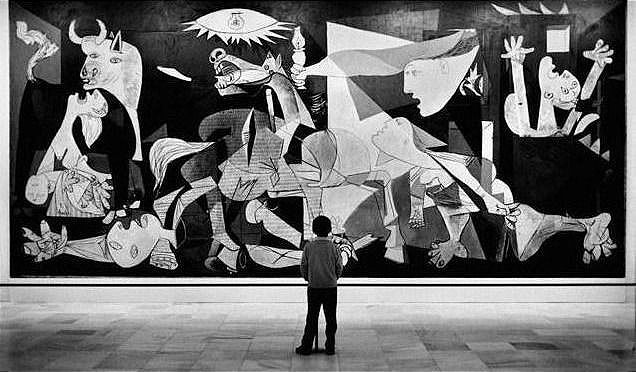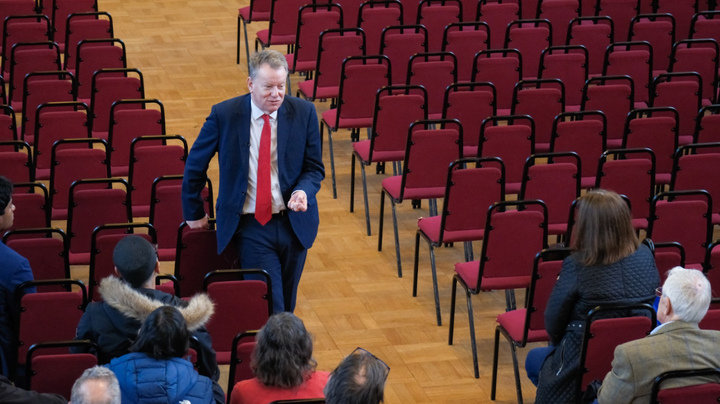The role of silence in Spain's transition to democracy

Gauri Khanna
Over the summer, I immersed myself in ‘The Ghosts of Spain’, a book describing the journey of award-winning journalist Giles Tremlett as he travels through the nation, uncovering its hidden past and the ways history has shaped it.
On reading the introduction, I agreed with his emphasis on the sheer level of noise that characterises Spain; having spent a month as a foreign exchange student in Valencia, I grew to love the spirited (and refreshingly direct) nature of the people, their lively fiestas, their expressive music and the constant buzz that lingers on their streets. So, naturally, I was surprised when Tremlett went on to recount how apprehensive Spanish people were to discuss the Civil War of 1936-39 that drastically changed the course of their country’s future. To explore why, I had to understand the background of this bitter conflict.
The Spanish Civil War ensued five years into Spain’s first attempt at democracy (La Segunda República), five years after the monarchy fell to make way for the newly elected republican leaders of the nation. It was a war that divided the people more profoundly than ever into ‘Las dos Españas’ (The two Spains), made up of the republican left-wing - communists, anarchists, socialists and worker’s unions - and the nationalist right-wing - conservative and entrepreneurial segments, the military, the Catholic Church and the aristocracy. The civil war ended with Francisco Franco, a prominent military officer, leading his fascist branch of the nationalist side to victory. He would rule as the dictator of Spain for almost four decades until his death in 1975, during which his totalitarian regime oppressed or killed anyone who did not fit with the image of the nation he wanted to create.
Tremlett acknowledged that there was bloodletting on both sides of the political divide during the Civil War and described cases in which even the republicans brutally murdered those suspected of harbouring nationalist sentiments. However, Franco’s falangist supporters were more notably vicious in the pursuit of their enemies and killed several times more leftists for every one of their slain men.
Whilst many of the dictator’s victims were thrown into roadside mass graves, some 34,000 of them were taken to be buried alongside their nationalist adversaries in a controversial monument, infamously known as the ‘Valle de los Caídos’ (Valley of the Fallen). Its construction, carried out by prisoners of war, was commissioned by Franco, supposedly as an act of reconciliation for those who had ‘fallen’ during the civil war, regardless of their political standing. Except, the victims’ families would never know that their loved ones lay under this dreary basilica, beside the man responsible for their demise, for, until 2019, Franco too was buried here as per his wishes, in a place of honour behind the looming altar at the end of the monument.
When I visited Madrid, I nervously booked a tour of the Valley of the Fallen, keen to learn more about the largest mass grave in Spain, yet aware of its polemical significance. It was when we drove through the ghost town of El Escorial and up to the imposing piece of fascist architecture, that the theme of silence became truly pronounced. My journey through Madrid had thus far been reminiscent of my time in Valencia- loud and lively- but stepping into the basilica, I was greeted with a chilling sense of quiet. Like Tremlett had pointed out in his book, a sign at the entrance demanded ‘silence in this sacred place’, and further into the monument, I was shocked to see a private wedding ceremony taking place- as if the venue weren’t eerie enough on its own. I questioned the tour guide as to why on earth one should choose to get married over war graves, and the middle-aged lady, who had done a fine job of remaining apolitical in her commentary so far, placed a hand over her microphone and quickly whispered: ‘Just because Franco is dead doesn’t mean his followers have all died with him’.
Her reluctance to speak freely about the politics of the site mirrored that of many Spaniards in the modern-day country, from civilians to politicians and history teachers. This hesitation to discuss the horrors of the civil war, Tremlett had taught me, was ubiquitous along the political divide in Spain, and even right-wing politicians in the 21st century would refrain from mentioning Franco’s name.
This would be unsurprising if totalitarianism still dominated the nation, however, democracy had been restored by 1978. Yet, in Spain, there were no truth commissions that detailed and shamed the extra-judicial murders carried out by state actors, unlike in post-dictatorship Chile or Argentina. In Spain, multiple records of these crimes were destroyed rather than brought to light after the death of Franco. In Spain, some Franco-era killers even retained political power during democracy rather than being tried before a court. In fact, the act of ‘forgetting’ - including amnesty for those who committed crimes against humanity - was signed into law in 1977 and became part of ‘El Pacto del Olvido’ (The Pact of Forgetting). With it, the political right and the left reached a consensus to suppress any confrontation of the legacy of Francoism to ‘ensure a smooth democratic transition’, despite a key tenet of democracy being open conversation.
Tremlett suggested that Spaniards can be sensitive to critiquing this pact of forgetting partly due to their pride in their largely peaceful ‘transición a la democracia’, which at the time, became a model for other shifts of power from authoritarianism. They were most likely surprised in 1975 when King Juan Carlos I, who had been raised by Franco to continue his regime under the guise of monarchy, turned his back on the now-dead dictator and oversaw the democratic reforms that would allow Spain to adopt a parliamentary system. Why exactly Juan Carlos would relinquish his executive powers is a debated mystery, but for the people, it was a breath of fresh air they were so desperate to preserve after decades of oppression. Perhaps this is why they not only accepted the pact but welcomed it, to brush the shameful past under the carpet and prevent provoking uprisings by extremist parties. The foundations of their fledgling democracy had already been shaken by a failed military coup d’état in 1981, attempting to restore a Francoist government, so why should they risk another?
Whilst some historians acknowledge that the forgetting pact had a purpose at the time of the transition, they question why it has been adhered to in the 21st century, with renowned author of Hispanic history Paul Preston commenting that it hinders the nation from "looking upon its recent violent past in an open and honest way".
Still, those determined to uncover the truth have persevered and positive change has ensued in recent years. Young people, born into a modern and progressive Spain, after the memories of the dictatorship have become too distant to feel directly painful, are stepping up to challenge the silence surrounding the Civil War. Since the first mass grave was dug up in Priaranza del Bierzo, they have increasingly pressured successive governments to exhume the remains of their loved ones and give them a dignified burial. Moreover, significant changes in legislation have culminated in the passing of the Democratic Memory Law in 2022, under Pedro Sánchez’s socialist government, to aid more rapid exhumation and identification processes.
Whilst it is uplifting to hear of such progress, there is still much to be achieved in assigning accountability for the Civil War crimes and delivering justice to victims’ families. A few courageous individuals, notably Judge Baltazar Garzón, have pushed for the repeal of the 1977 Amnesty Law, yet to no avail, likely due to the deep-seated anxiety amongst democratic governments of a far-right rebuttal. And, even though legislative changes have been a step towards open conversation, the reminder of its consequences under Franco means it may take much longer to alter generational mindsets.
Tremlett wrote ‘Ghosts of Spain’ in 2006, when the most prominent political parties in the country (namely, PSOE and PP) were, whilst clearly left or right-leaning, generally moderates, and certainly posed little threat to democracy and free debate. Despite this, he warned of the dangers of staying silent about the past, labelling ‘amnesty’ as a form of collective ‘amnesia’. Perhaps this amnesia is why, in 2023, we have seen the rise of more hard-line parties along the political spectrum- in particular, the ultranationalist far-right ‘Vox’. They have stood out as mirroring Francoist narratives with their deeply anti-liberal policies, yet have become the third largest party in Spain and, a year after my exchange programme there, entered into a regional coalition with PP in Valencia.
I believe that open discussion about the Civil War and Francoism in Spain’s current political climate is more important than ever, for, as the old aphorism goes: ‘Those who cannot remember the past are condemned to repeat it’.




Comments ()